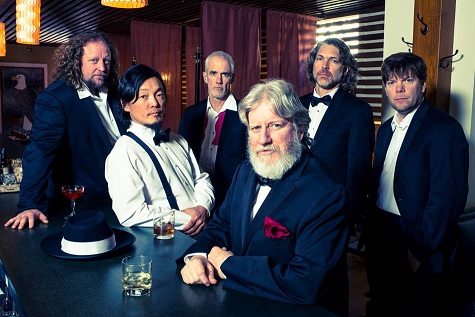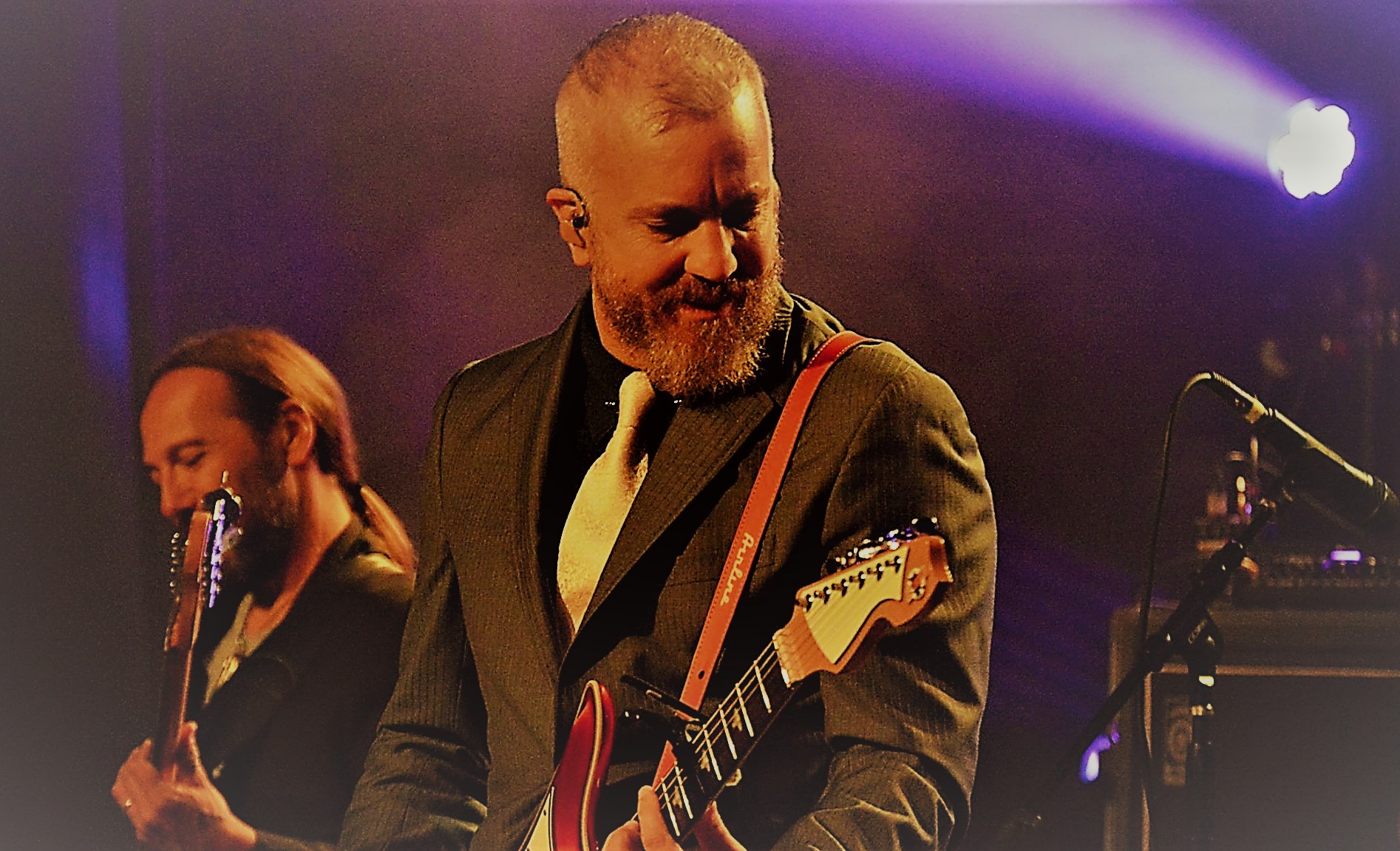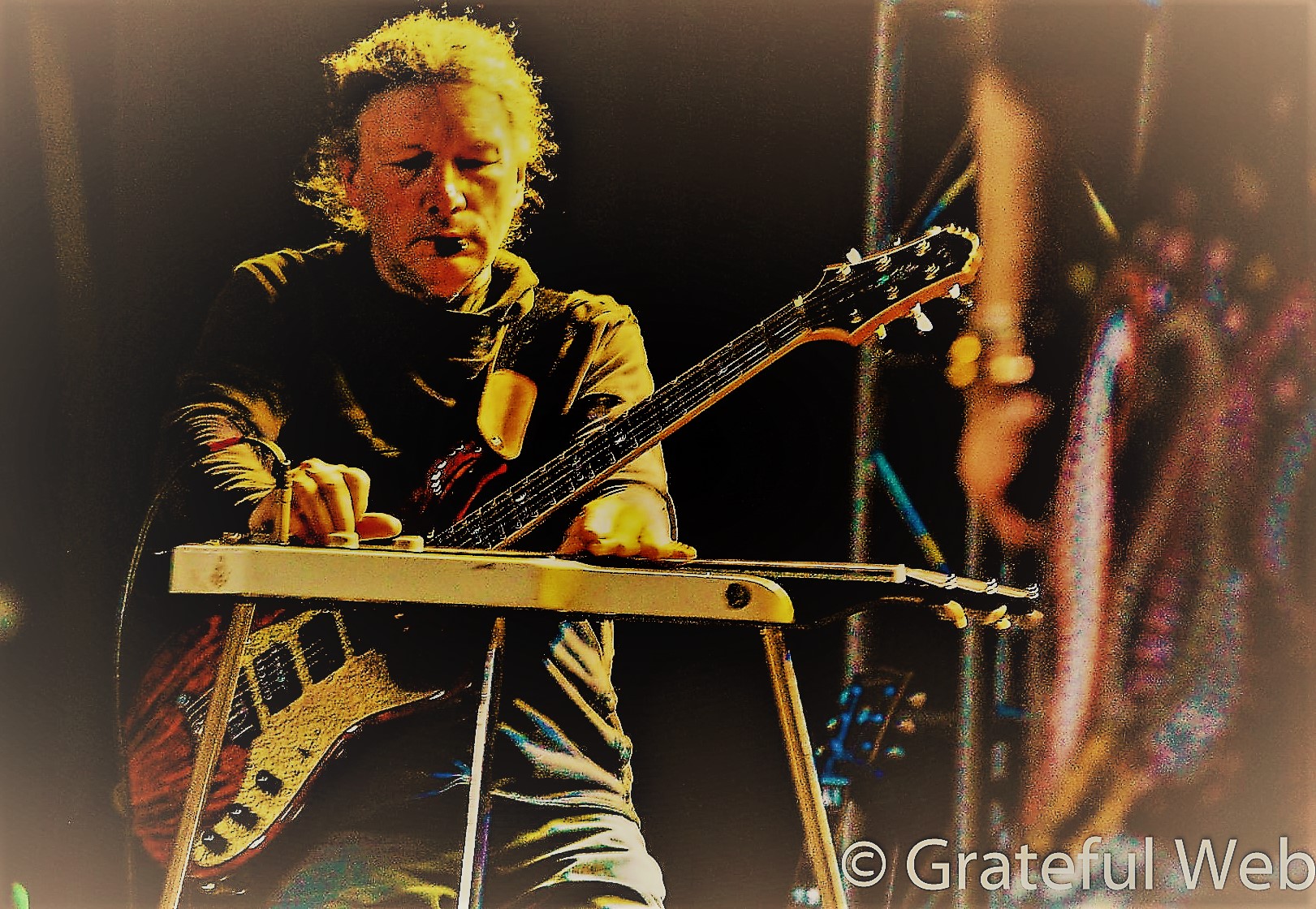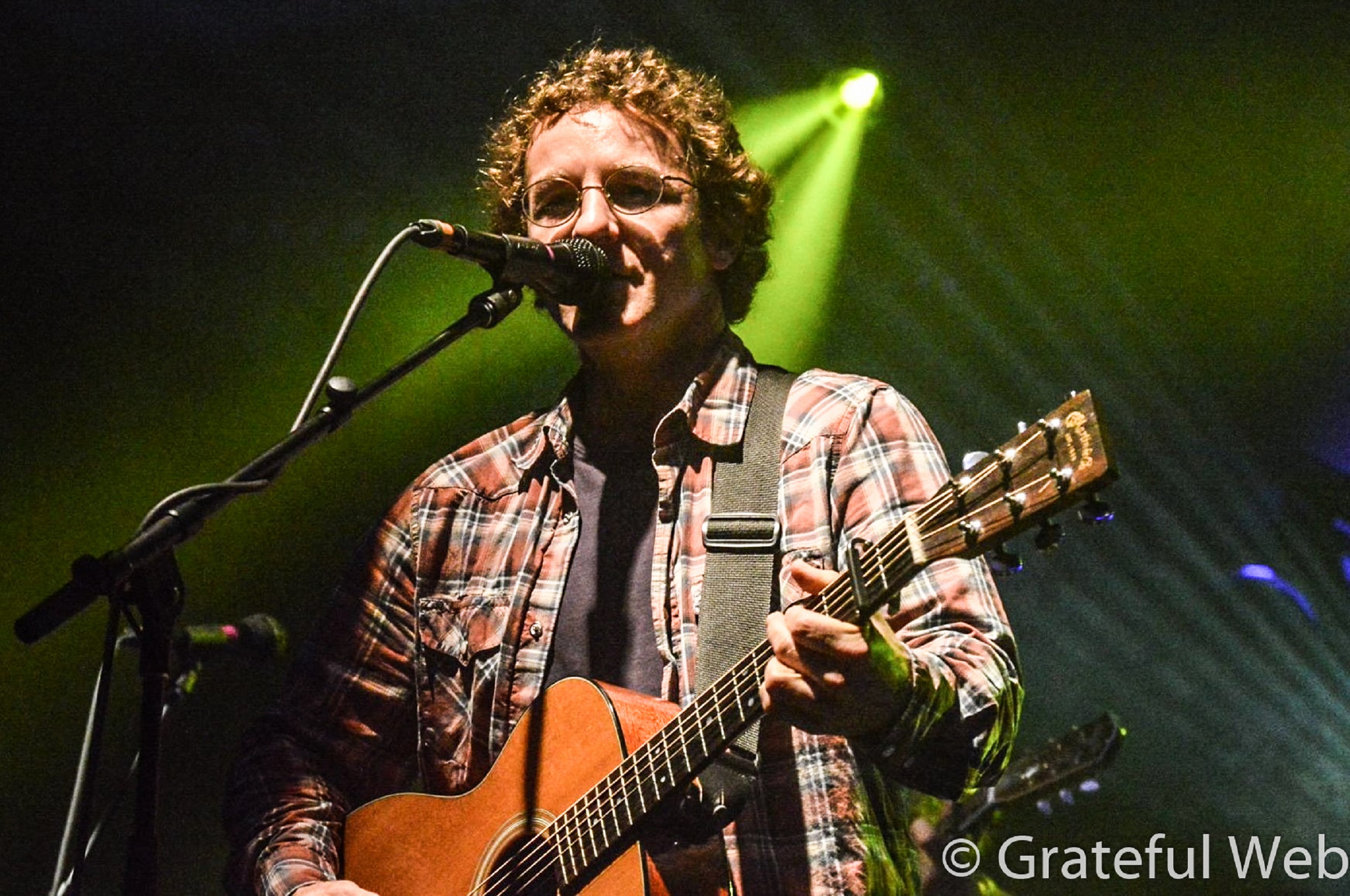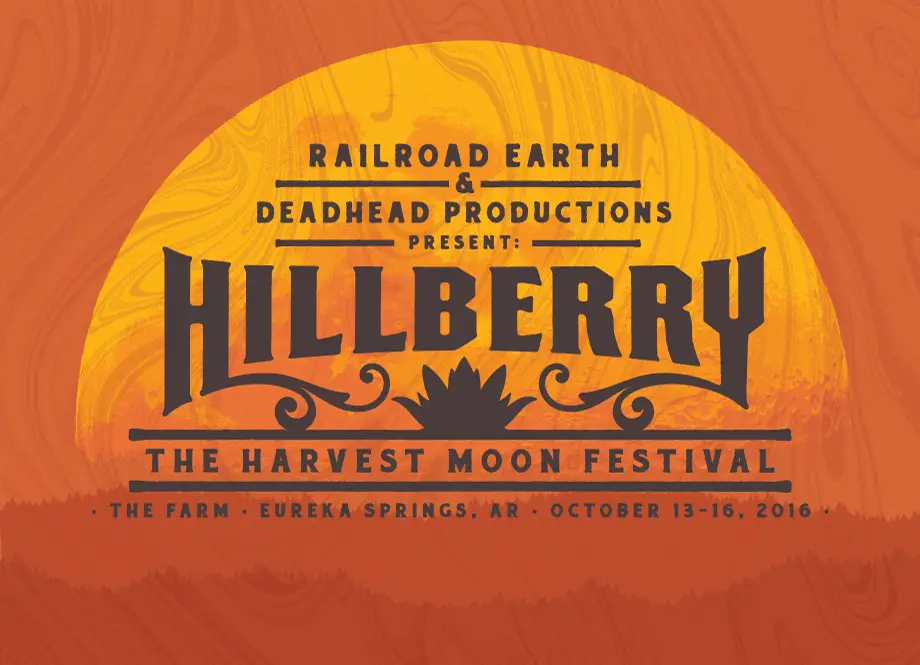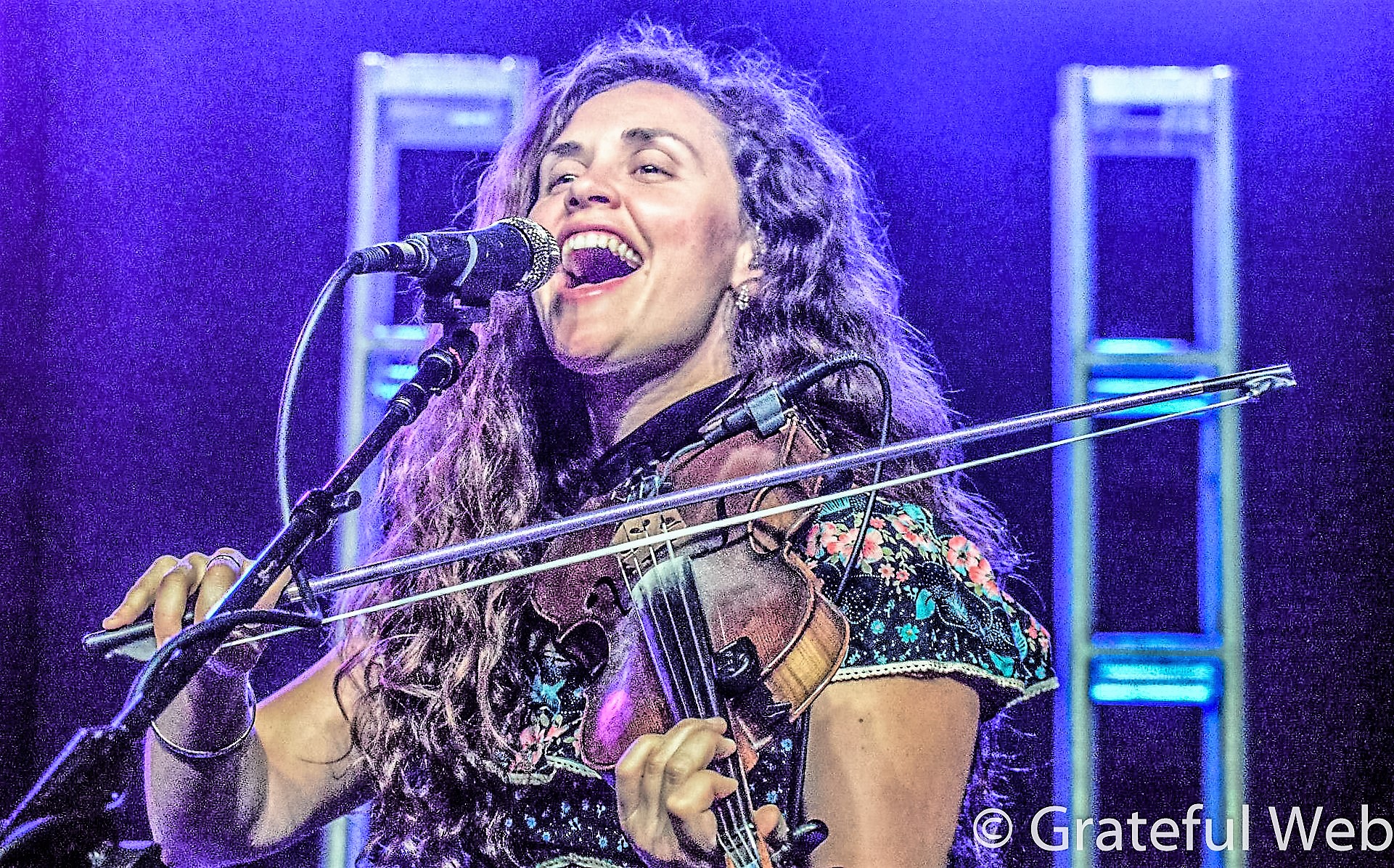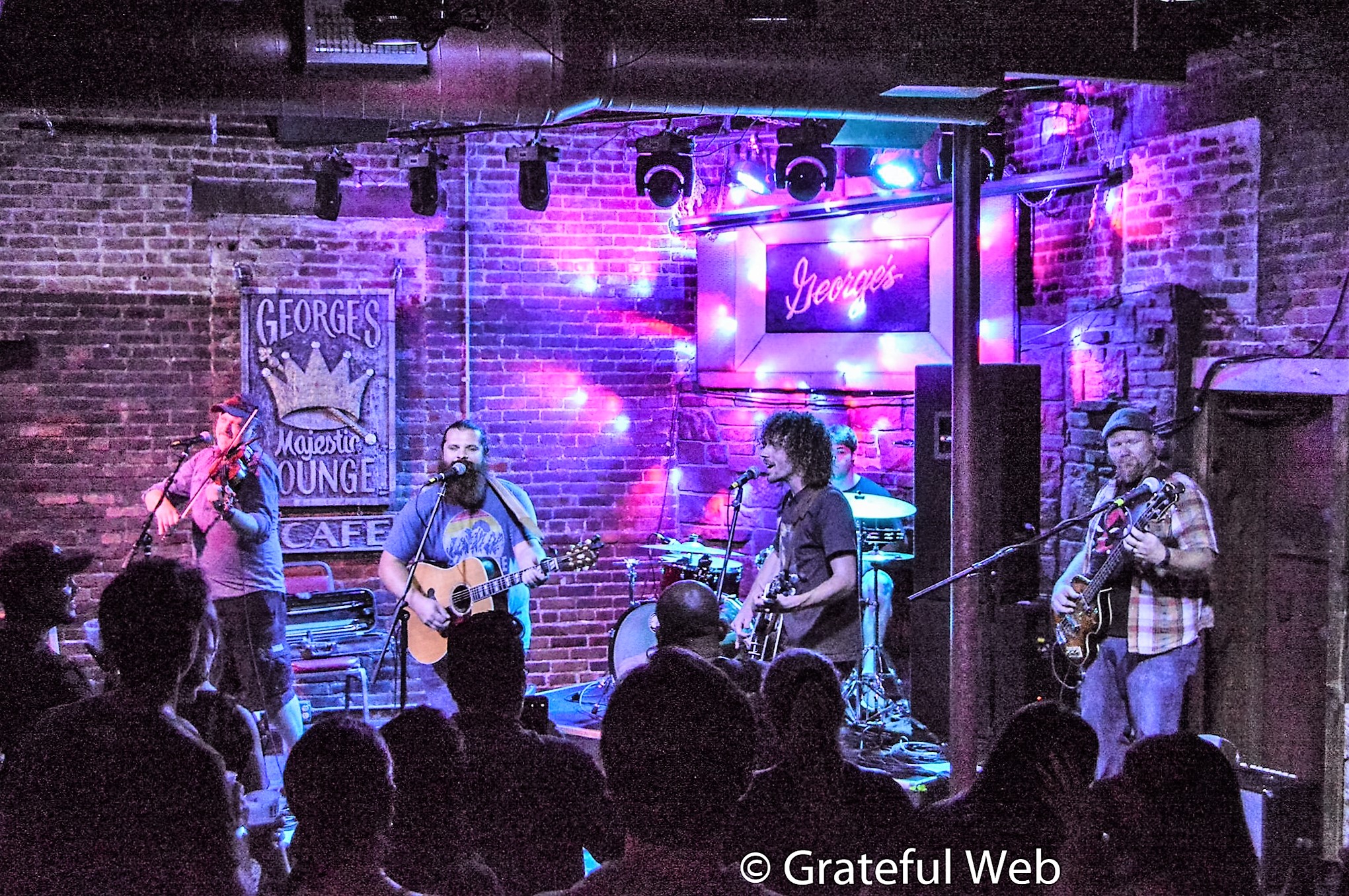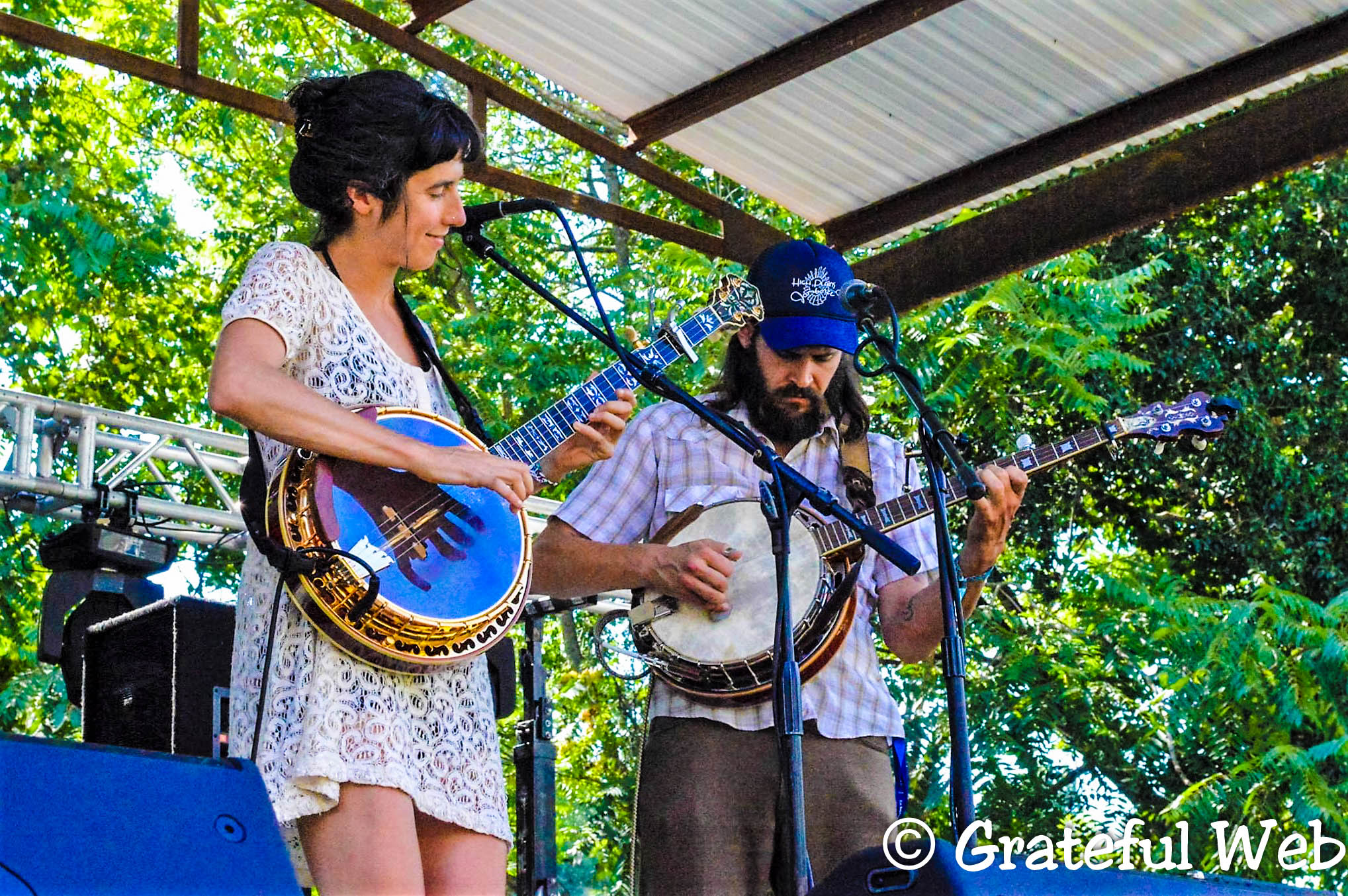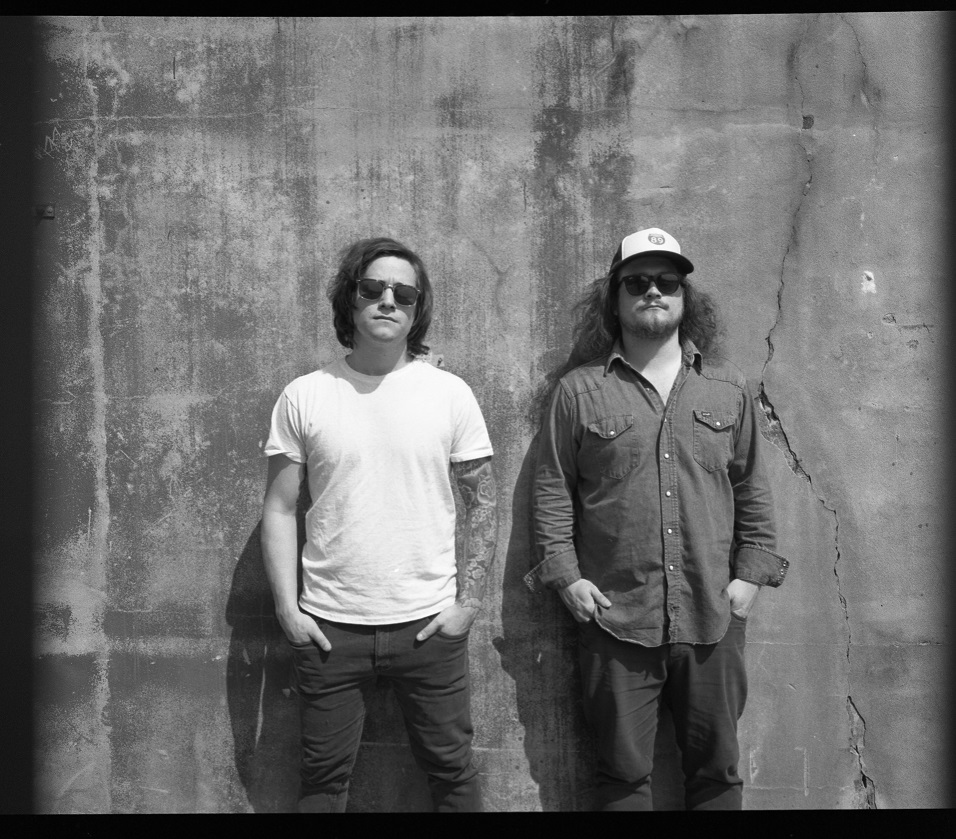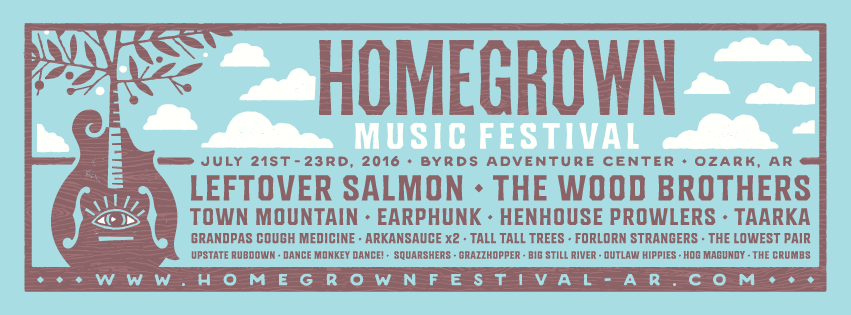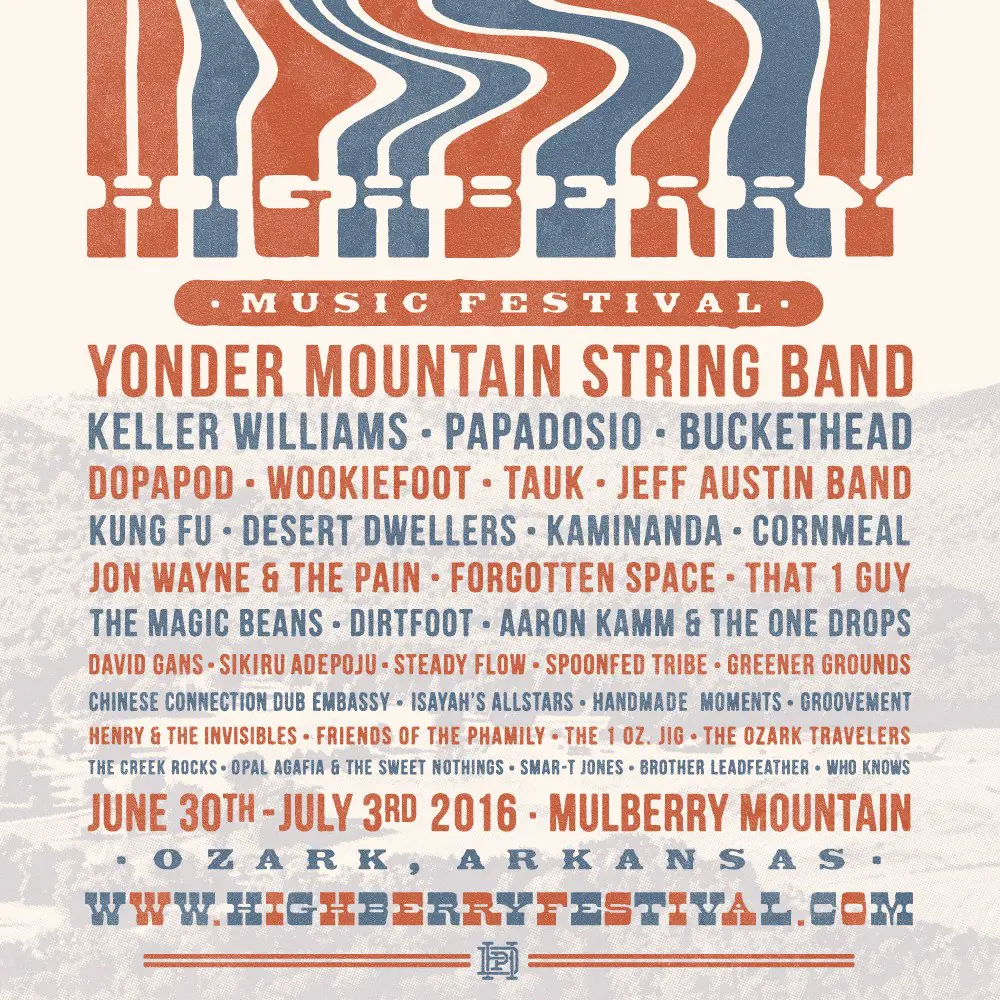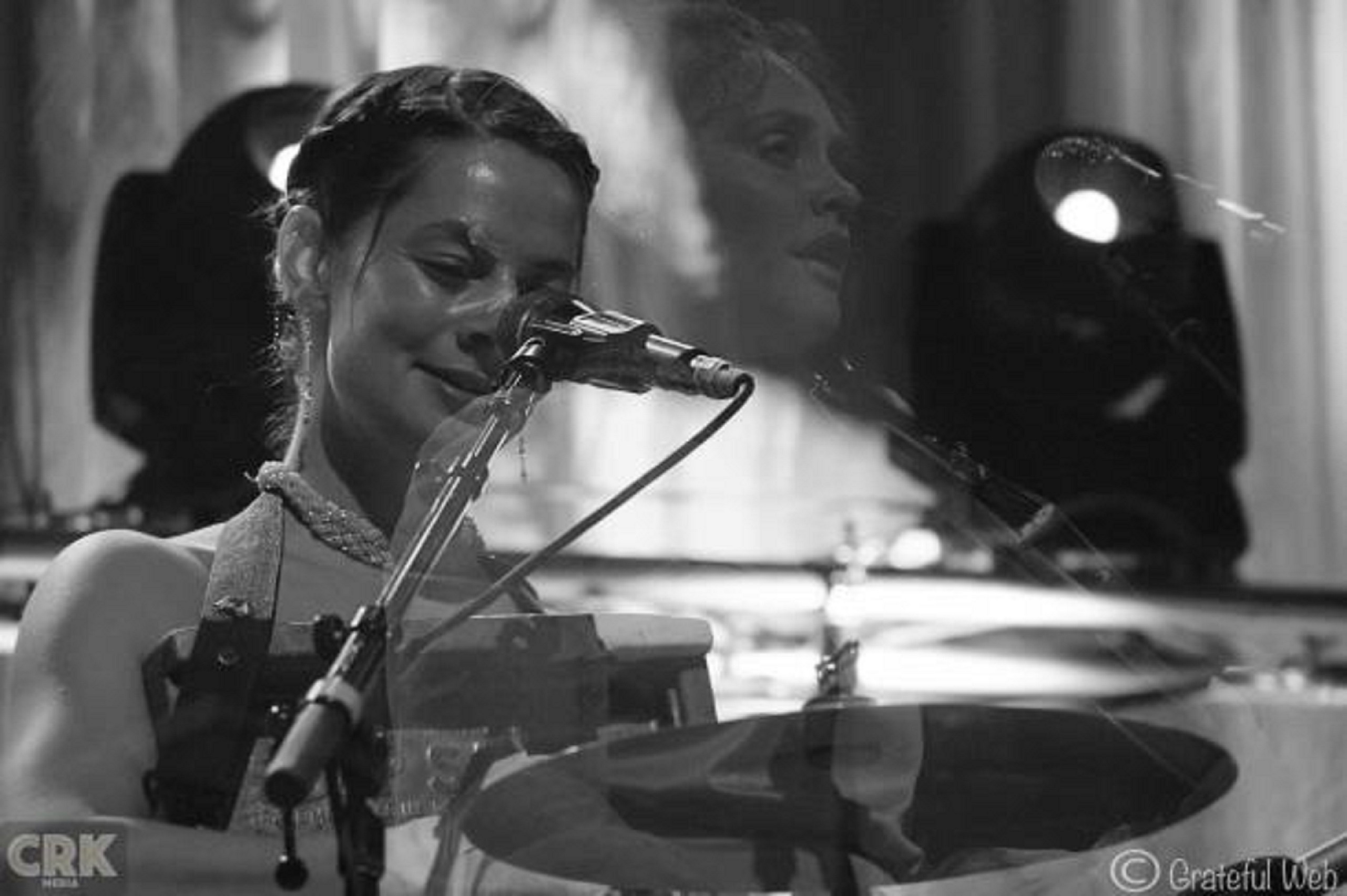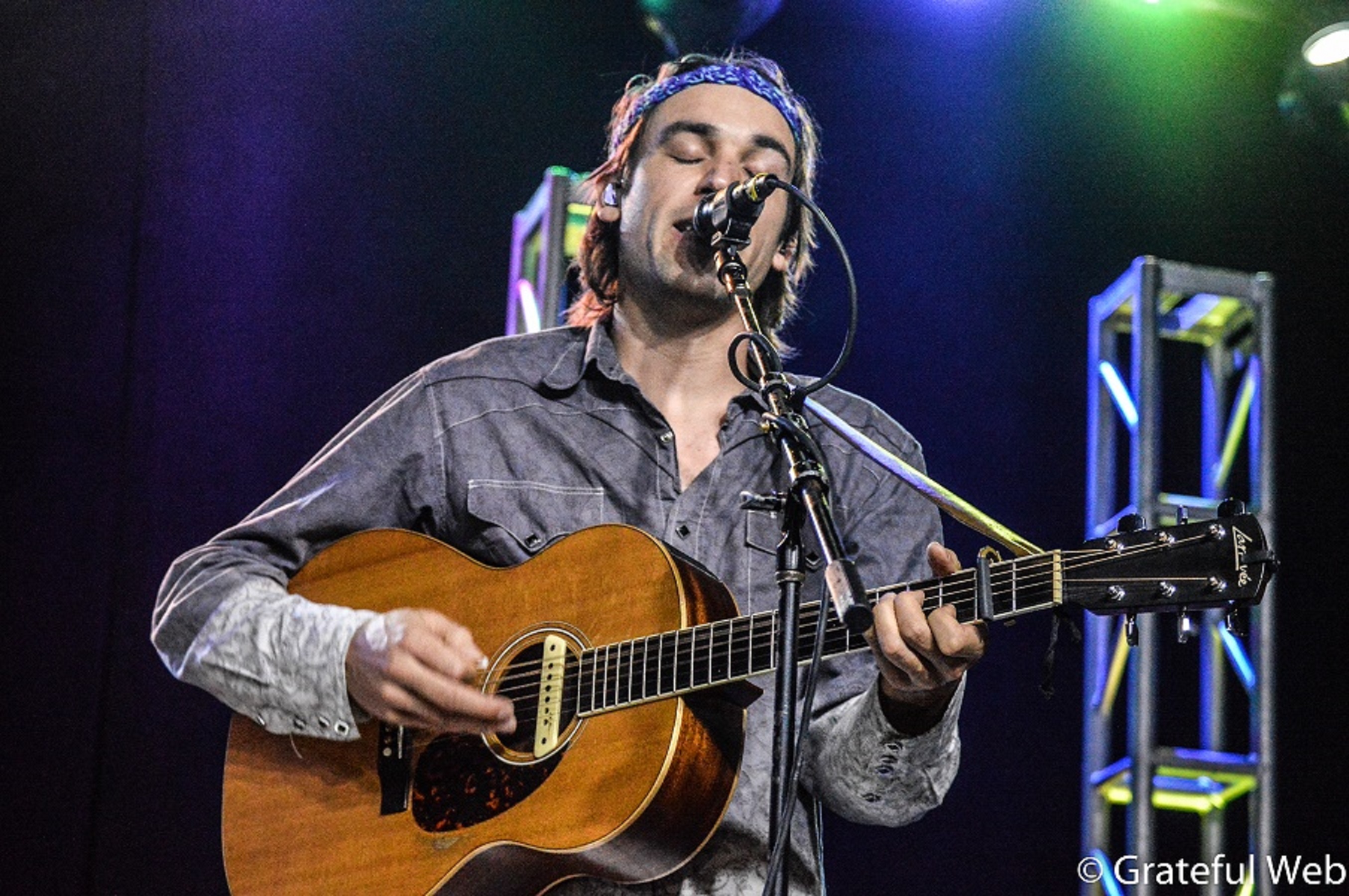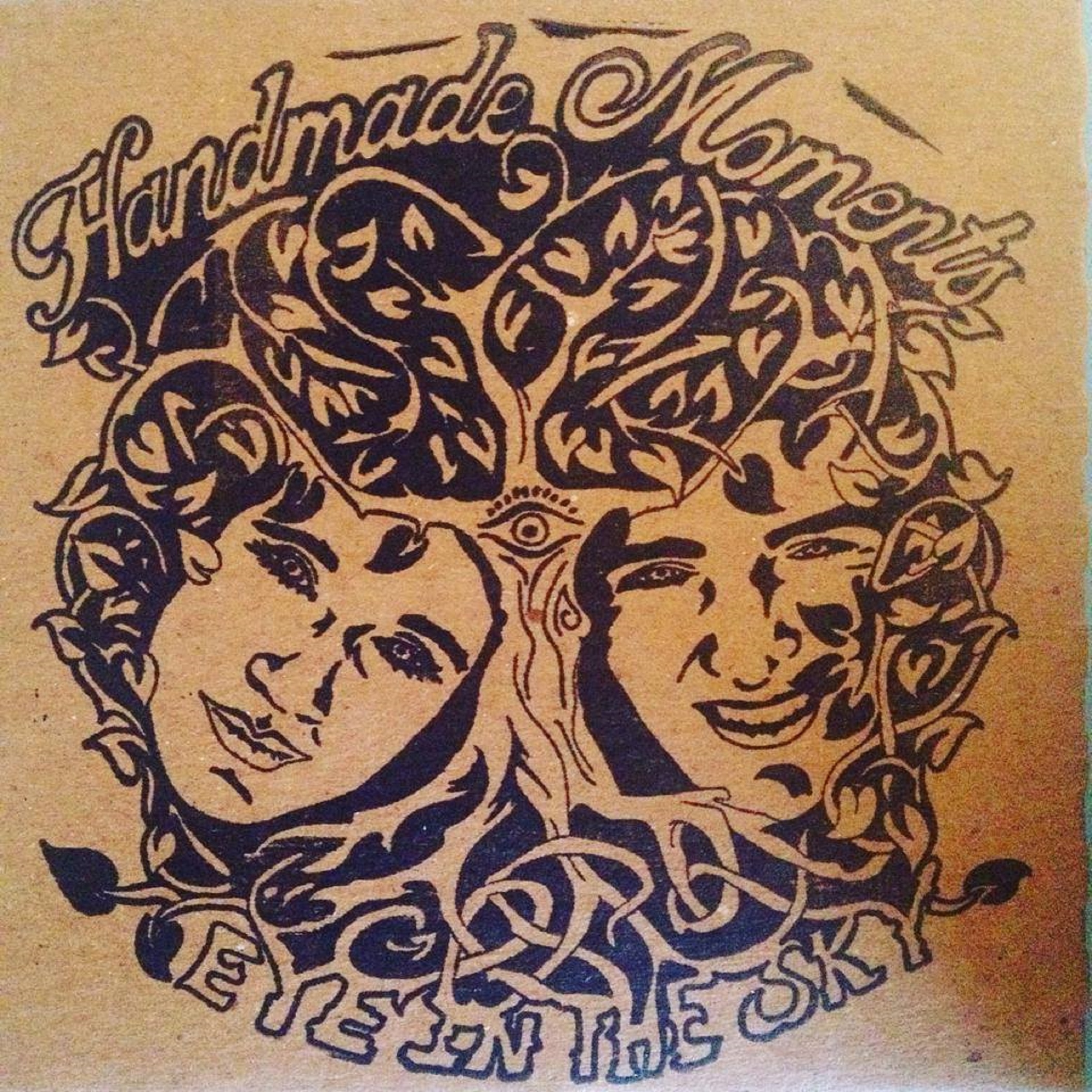I wanted to interview a member from The String Cheese Incident not because I have their whole collection, because I’m a huge fan or even because I’d seen a show of theirs before. Instead, the main driving force for my choice was because SCI is a mainstay in not only jam music but really in the music industry as a whole. It seems there aren’t a lot of bands these days that can keep a cohesive sound for 20+ years. So I know there’s something special about this band.
There’s a lot going on for SCI right now. They have a new album out on April 29 – their first studio album in 9 years – and they’re playing lots of festivals to support it. They’re also playing a free show in Boulder, CO on April 28, to celebrate the album release give back to the community that has given SCI so much.
Upon interviewing SCI percussionist Jason Hann I learned a lot about the band’s foundation, as well as a lot of interesting things about Hann. Something I can say for certain is I will not miss catching SCI at Wakarusa this year – just from speaking with Hann I felt the tug of the band’s message of unity, happiness and music.
I think the interview speaks for itself, so we’ll just go right into that.
GW: So this is your first studio album in 9 years? How is it different from other albums you guys have produced?
JH: It’s definitely been in the making for a long time. The songs we used for the record, we ahd been playing them live the year before. We finished recording all of them almost a year and a half ago. It was definitely time to write another album and get all these new ideas recorded. Initially we were going to use different sessions and producers for all the different styles of songs but Jerry Henderson, who is in the Talking Heads, started working with us and things clicked. The vibe was good, his engineering was great. Everyone in the band feels like this is the best representation of the band and how we sound live.
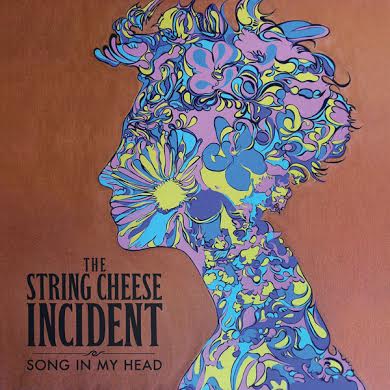 GW: Do you feel like you still want to have an album that uses different producers?
GW: Do you feel like you still want to have an album that uses different producers?
JH: Well, we have about 4 songs on the electronic side of things and we wanted to use a producer/remixer to give the songs their maximum benefit.
GW: How does this album differ from music you’ve released in the past?
JH: When you’re in the studio and you’re recording the songs and adding more textures…Jerry had the flow of us going in and doing what we thought was good. He was more of a decision man. It felt like he was getting what we essentially go for as a band. Making decisions like changing the key signature and all the feedback [from Jerry] was spot on.
GW: In the previous albums where you feel you haven’t been a well-represented do you play those songs differently or not at all?
JH: Two albums ago, Tying the Knot, was almost going for an indie-type production. Some of the stuff we couldn’t have done live; it would have been such a departure from our set. On this past album we did a song called Betray the Dark. The way we play it live we include a lot more African percussion; in the studio we ended up doing it with a thumb piano and changed the time signature. It was a quirky approach to it, not necessarily how we’d play it live. We did that song on this current album, but we did it how we would picture not only us doing it, but an African band…stacking percussion on it. That’s more how we play it live, except all the parts are more enhanced.
GW: You’ve played in a lot of non-Western cultures; what have different cultures of music taught you about music that you may not have learned from Americans or Westerners.
JH: It’s such a different approach of both deft and what is tradition, and how does that fit within the culture, as opposed to what gets played in the clubs in those countries. One thing I really enjoy is indigenous music and the way they take their individual rhythms and, as a sense of pride, combine those rhythms with keyboard and guitar. It’s an incredible wealth of pride to see the same rhythms transferred to a modern setting. Some of the singers in West Africa, after they’ve done records with keyboards and programming, there’s a trend to be more roots-y about their approach but just record everything really well.
Hold on one second, a big sheet of ice just fell on my windshield. **Fixes dangerous ice situation**
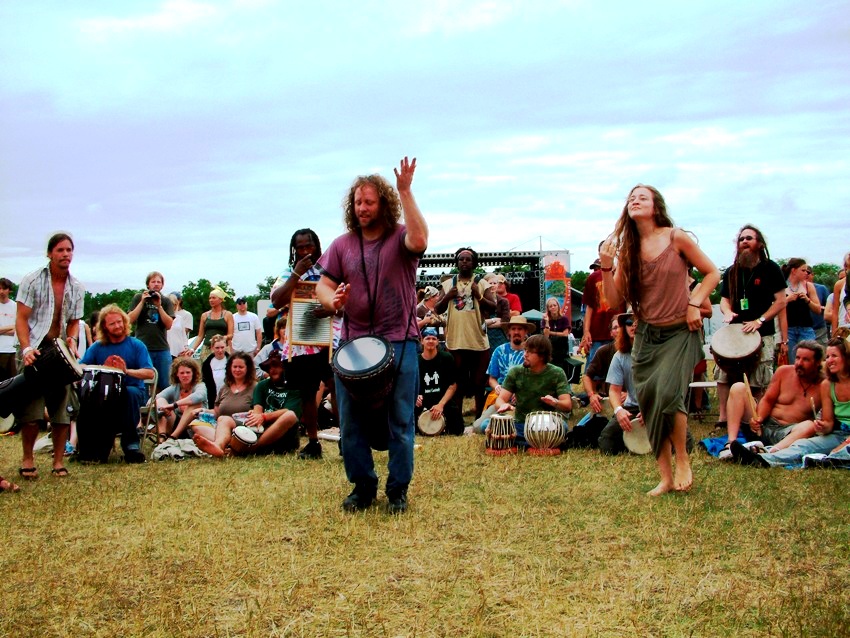 The other part is where music gets placed in someone’s day to day. Music can be completely recreational and then there’s ceremonial music that, at the very least, it’s part of the fiber of life. It’s not only fun to make people dance but when some of the music is actually about making people transcend their body and go to a completely different place is another perspective. Music from other cultures – you’re internalizing it and somehow you can turn these influences into your own kind of meaningful voice.
The other part is where music gets placed in someone’s day to day. Music can be completely recreational and then there’s ceremonial music that, at the very least, it’s part of the fiber of life. It’s not only fun to make people dance but when some of the music is actually about making people transcend their body and go to a completely different place is another perspective. Music from other cultures – you’re internalizing it and somehow you can turn these influences into your own kind of meaningful voice.
GW: Do you feel like ‘hit music’ is inherent in all cultures?
JH: Yeah, absolutely. But for an outsider it might be more intriguing. Like with electronic music, it felt like there was an underground bass movement going on and it was really exciting. They really wanted to bring that music from the UK. Then it was like you just got vomited on by all of this music that sounds the same. The minute it gets popular, 70% of it or more just becomes bad. I love to study current music, I can usually find some artists that are really doing something different.
GW: Are there any artists you can name who fit that bill now?
JH: If you go to Senegal there’s some names that have been the top of the generation since the late 90s, Youssou N’Dour and Baada Maal. They have access to the best musicians that are doing the most cutting-edge stuff. Miles Davis would get the best young players on the scene, even though they were playing a different style that would help him change his style. Then all of a sudden Miles Davis created this new style; but it was coming from young contemporaries and combining that with the wisdom of an older person willing to go with fresh roots.
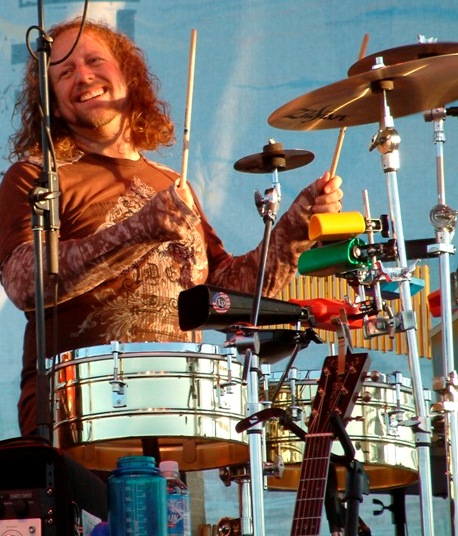 GW: You have a Twitter campaign right now, do you like messing with that?
GW: You have a Twitter campaign right now, do you like messing with that?
JH: SCI is one of those bands that sort of broke the mold for other bands. SCI decided to get in a bus, live in a bus and do 300 shows a year. We’re going to come through your city so many times you’re going to know us. So many bands ended up using that model; at the time media was expensive to come by so we just hit the road and it didn’t matter if it was playing on the radio because people were trading CDs of our live shows. Twitter is just a way to get more people talking about us the way things were being traded but a lot, lot faster. If you want to connect with people who are connecting with all these other people you have to have a presence.
GW: What drew you to play the instrument you play? What other instruments do you play?
JH: I grew up playing drums at the same time I started percussion. If I’m working on something in the studio I play bass and keyboard. I learned quite a bit of theory when I was younger so I know how to get around harmonically, but I definitely don’t have the technique to be badass on those instruments. One of my strong points is song arranging and collaborating.
GW: Do you write a lot of songs for other groups or people?
JH: If I’m in the studio doing percussion or drums on the session I’ll start collaborating. I co-wrote a song with one of the African guys I mentioned earlier. We recorded a demo and his guitar player ended up playing it for him and that became a hit song for him in Africa.
GW: Are there any instruments you wish you played?
JH: *laughs* Oh yeah, I wish I played all of them. In particular, since I have a taste for piano and do so much writing I wish I were a better piano player so I could stretch out harmonically. When I play drums or percussion I feel like I’m just listening to the music and there’s a certain fluidity, but when I’m playing keyboard…
GW: What keeps you playing on a stage every night? What do you get from the audience and from being a professional musician?
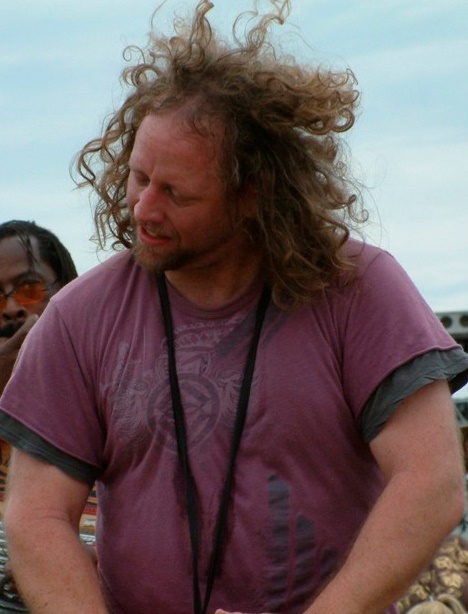 JH: That’s easy. It still inspires me and gives me a reason to get up in the day. Once percussion instrument is really a lifetime study in itself. So with access to all of these instruments that have different textures and hundreds of years of history, it’s such a treasure chest of eternal giddiness. You know, it’s still my hobby. When I’m home I’ll go to my studio and practice, write a song or invite somebody over to play and it’s still my day-to-day expression.
JH: That’s easy. It still inspires me and gives me a reason to get up in the day. Once percussion instrument is really a lifetime study in itself. So with access to all of these instruments that have different textures and hundreds of years of history, it’s such a treasure chest of eternal giddiness. You know, it’s still my hobby. When I’m home I’ll go to my studio and practice, write a song or invite somebody over to play and it’s still my day-to-day expression.
GW: So, what other things in your life are inherently important as music is to you?
JH: As long as my family is happy I know whatever I’m going through things will work out and be well. That sets the barometer for everything else. When you feel like you have that kind of support everything seems to line itself up in the direction of intention. In terms of importance, family and then, honestly, if I’m practicing or learning music that’s really nurturing. As far as friendships, when you find the ones you feel good being close with those are the keepers. It’s hard to find a lot of those.
GW: What would you put on the best sandwich ever?
JH: I’d have to finish it off with funfetti somehow. Even if it’s a steak it’s a steak with funfetti and maple syrup. Or a peanut butter and jelly sandwich with a banana, some whipped cream, hot fudge and funfetti. I hardly ever buy funfetti but I wonder how does my day-to-day exist without it? I know my teeth would probably fall out eventually…
GW: I have some friends who are super big fans of you guys, so I have some questions from them. One of them is: You are by far the best band at the build in the world, is most of that improve or is there structure at the peak of the jam/build?
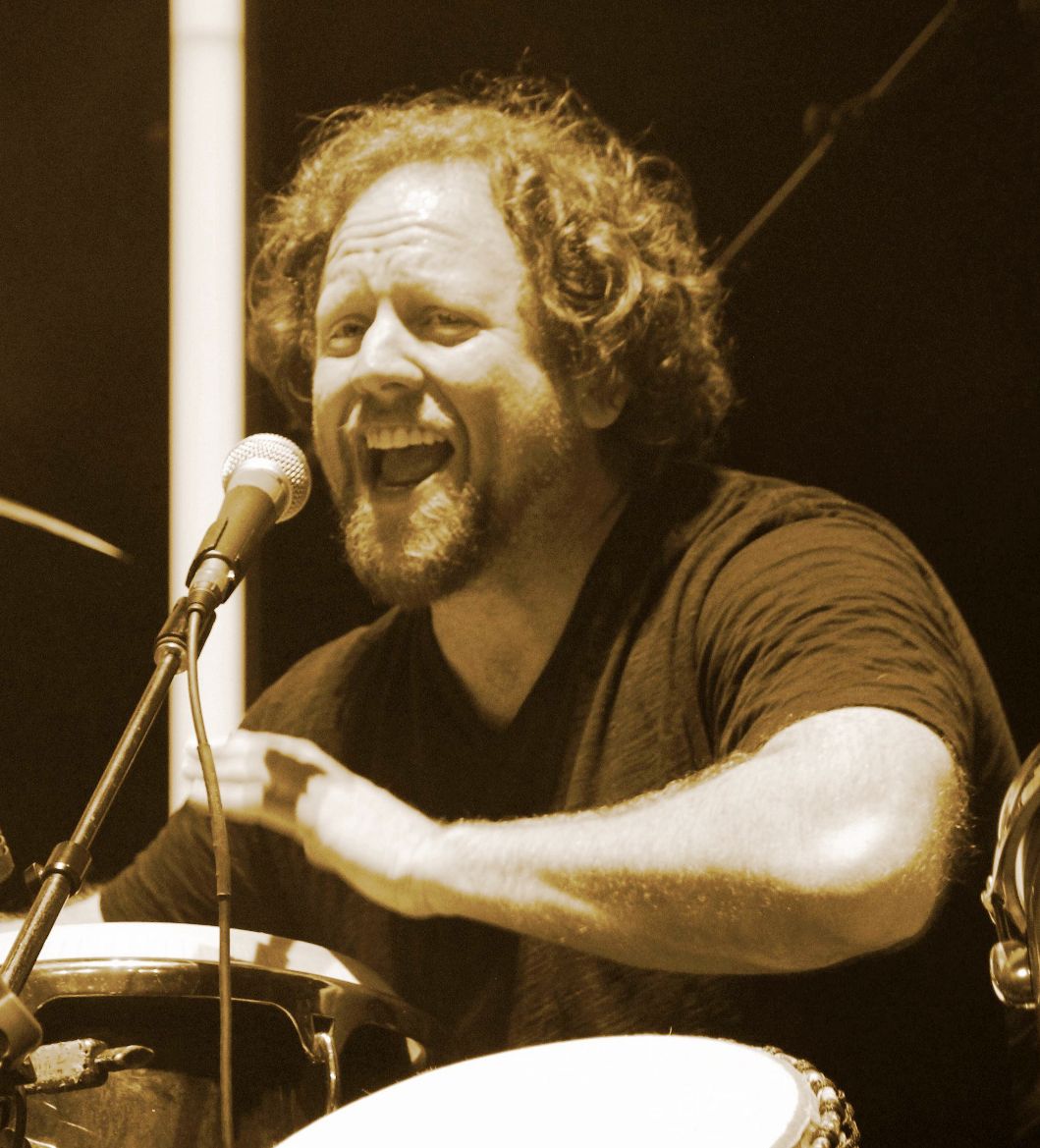 JH: Sometimes if we’re writing out a set and we’re getting ready to play a song we usually play a jam on sometimes there’s a suggestion, instead of what we normally how about we use this chord structure and it will help us flow from this song to another. And sometimes it’s just…let’s throw it out the window and let’s just play and call it out onstage and morph into it. There’s so many vehicles for doing that; sometimes where you take a song energetically isn’t always predictable.
JH: Sometimes if we’re writing out a set and we’re getting ready to play a song we usually play a jam on sometimes there’s a suggestion, instead of what we normally how about we use this chord structure and it will help us flow from this song to another. And sometimes it’s just…let’s throw it out the window and let’s just play and call it out onstage and morph into it. There’s so many vehicles for doing that; sometimes where you take a song energetically isn’t always predictable.
GW: Have you played in Arkansas before?
JH: Me and Travis, the drummer in the band, we have a side project [EOTO] where we’ve played at George’s a bunch of times.
GW: Is there anything you’d like to say to the readers of Grateful Web?
JH: We’re getting back to Wakarusa; we haven’t been since 2005 when it was in Kansas. Especially if you haven’t heard the band before, come check it out. It’s a truly unique experience; just being in the audience with the String Cheese fan-base is a completely other quality to it. You don’t have to bring a certain attitude, you can feel comfortable in a cape or fairy wings and people are going to prop you up and encourage your uniqueness. If you’re about just being yourself and letting go, I know between our music and our fans all of that is encouraging you to find yourself on a deeper level and letting go at a deeper level.
Visit The String Cheese Incident's website, Facebook or Twitter for more information, tour dates and to purchase Song In My Head.





